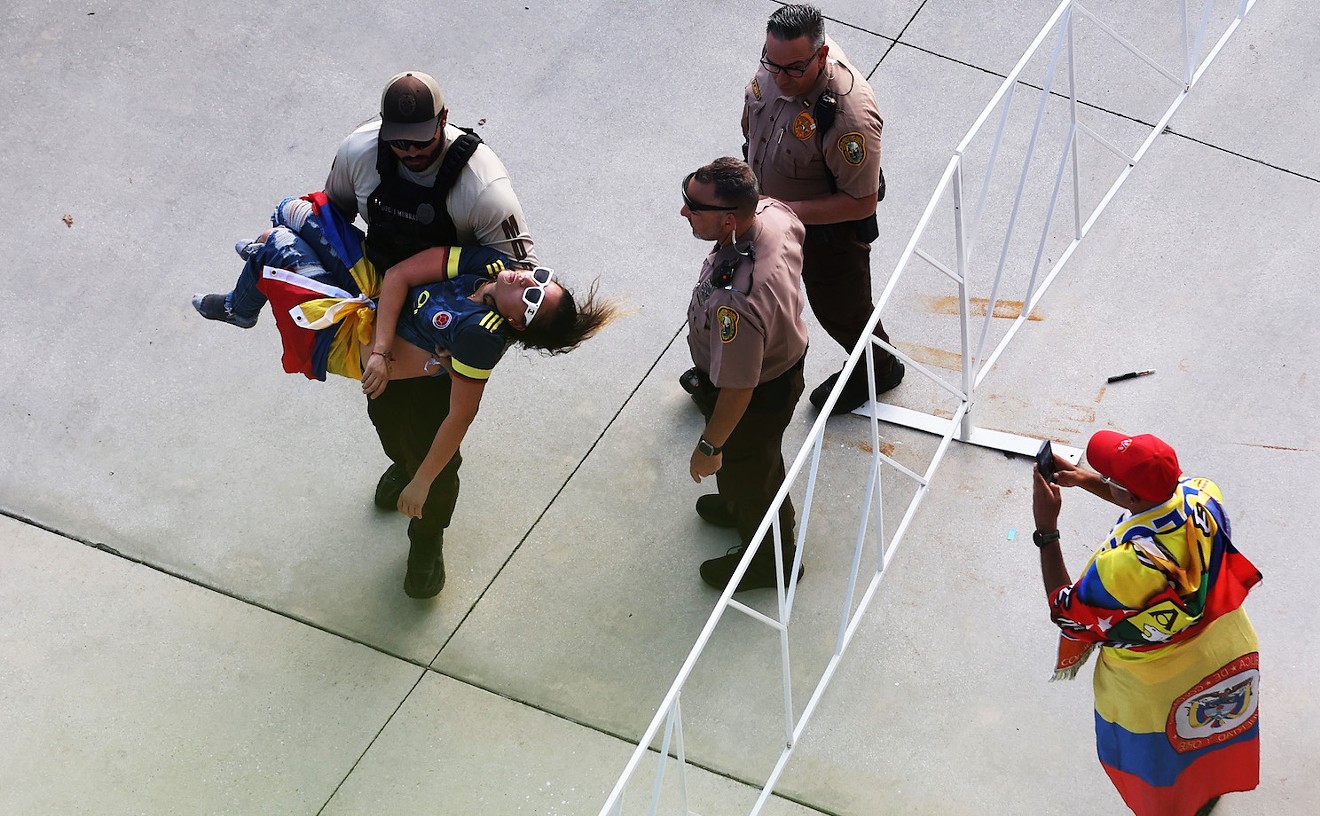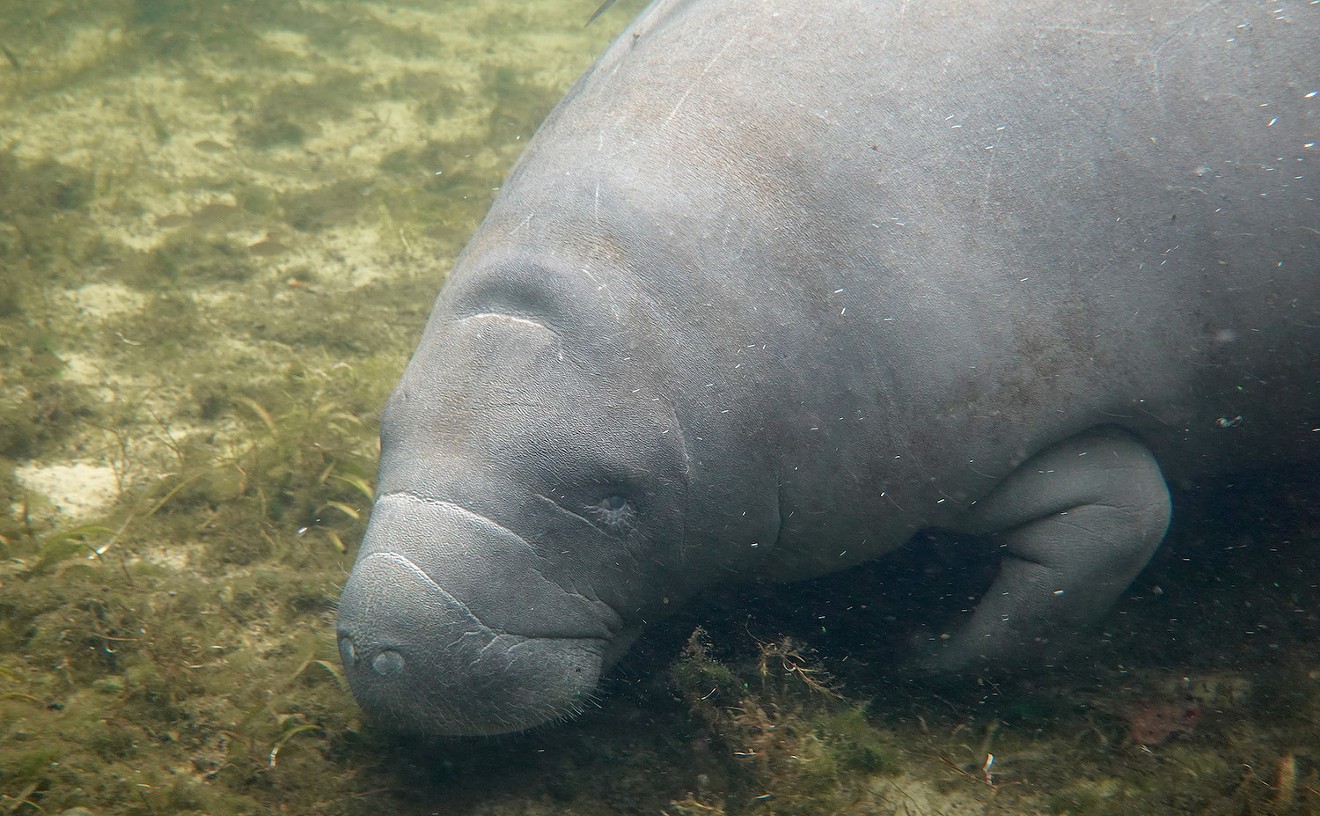But curiously, Palm Beach County has not chosen to combat the Zika-carrying Aedes aegypti mosquito by pumping the air full of pesticides. For Miami residents, the reason might be surprising: Palm Beach County Mosquito Control experts tell New Times they believe the aerial spraying used in Miami-Dade simply doesn't work and might just be for show.
"There's a certain aspect of mosquito control that's somewhat psychological," says Palm Beach County Environmental Program Supervisor Gary Goode, who stresses that he has not spoken to Miami's mosquito experts and does not know why they planned aerial missions. "When you’re saying, 'Oh, we’re going to aerial-spray,' it relieves some anxiety even if it's not going to do anything against those mosquitoes."
Two Miami-Dade Mosquito Control spokespeople did not immediately respond to New Times' requests for comment about why aerial spraying has been used in Dade.
Palm Beach's stance on spraying came to light after a resident asked Goode if the county could warn her before it sprayed the air with naled, a controversial pesticide banned in Europe, which has been linked to attention deficit/hyperactivity disorder in infants. Naled is one of the chemicals that has been used in Wynwood. (Palm Beach County's second locally acquired Zika case was announced last Wednesday.)
Goode responded, however, by saying Palm Beach County won't be spraying from the air to fight Zika at all.
"While naled was indeed used in our recent air operation, it was not for Zika mosquito control, as was reported in the press, but for nuisance mosquitoes," he wrote back to the resident last week. "I just wanted to reassure you that we do not intend to conduct aerial spraying for Zika mosquito control like Miami is doing, because it's not effective against that mosquito."
When New Times reached Goode by phone, he stuck by that stance. He says his department believes spraying pesticides by planes early in the morning does little to kill the Aedes aegypti because those mosquitoes are "day-fliers." Before Miami-Dade limited its spraying to Saturdays last week, the county had been spraying as early as 5:30 a.m. to kill mosquitoes. The county was using two chemicals — naled and an organic, bacterial larvicide called Bti.
"It's a well-established fact in the mosquito-control business: Do not spray day-flying mosquitoes at night, or you're not going to hit any of them" Goode says. He maintains that in order for pesticides to be effective, they have to hit the mosquitoes when they're most active, which, by his estimation, is in the middle of the day around noon.
"But if you spray during the day, you're going to get thermals from the sun on the pavement," he says, referencing the upward drafts of air that occur when the sun bakes the ground at different rates. "Especially spraying a city area, you're going to have more thermals, and the spray is just going to go straight up."
Goode is not alone in his skepticism. Today, Kaiser Health News reported that mosquito-control experts around the globe don't believe aerial spraying does much to kill the Aedes aegypti.
But experts with the U.S. Centers for Disease Control and Prevention, as well as the American Mosquito Control Association, say that sort of thinking is "outdated" and that aerial-spraying techniques have improved in recent years.
Regardless, Goode says there are better ways to kill the disease-carrying pests. Palm Beach County has focused on hunting down individual nests and breeding grounds because Aedes aegypti mosquitoes do not tend to fly more than 300 yards from their nests.
As for why Miami-Dade chooses to spray from the air, Goode stresses that the folks at Miami-Dade County would have to answer that question themselves. Those pesticides have already been controversial, with naled's use sparking at least one protest earlier this month.
Goode did say, however, there's an aspect of mosquito control business that's simply for show.
"What happens is, you get a lot of people are scared about this virus being in the United States, and aerial spraying makes people feel better," he said. "And once you start down that road, the public gets conditioned to think that spraying is the only thing that works."
But Goode sees an issue with this approach, too. After aerial spraying, he believes residents can get a false sense of security, and stop draining standing water on their own properties. He says that's one of the major reasons Palm Beach County hasn't launched its own planes to fight Zika.
"It creates a false sense of security," he says. "People think, 'Oh, since we got sprayed, we don’t have to worry about getting these bromeliads out, or draining old tires.' We don’t want anyone to think spraying fixes everything."
Update 4:36 p.m.: Miami-Dade Mosquito Control spokesperson Gayle Love tells New Times the county believes it's killed 90 percent of the mosquitoes in Wynwood:
In close consultation with the Centers For Disease Control, the Florida Department of Health and the Florida Department of Agriculture and Consumer Services, Miami-Dade County’s Mosquito Control Operations conducted a four-week aerial campaign of alternately applying larvicide and adulticide to reduce the Aedes aegypti population in the area just north of downtown that has cases of locally transmitted Zika. The numbers from mosquito surveillance traps following the aerial spraying program show a 90% reduction in the Aedes aegypti population. We are confident that the aerial assault, along with our continued efforts on the ground, have been effective at reducing the domestic mosquito population and helping to break the cycle of Zika transmission in the Wynwood area.











